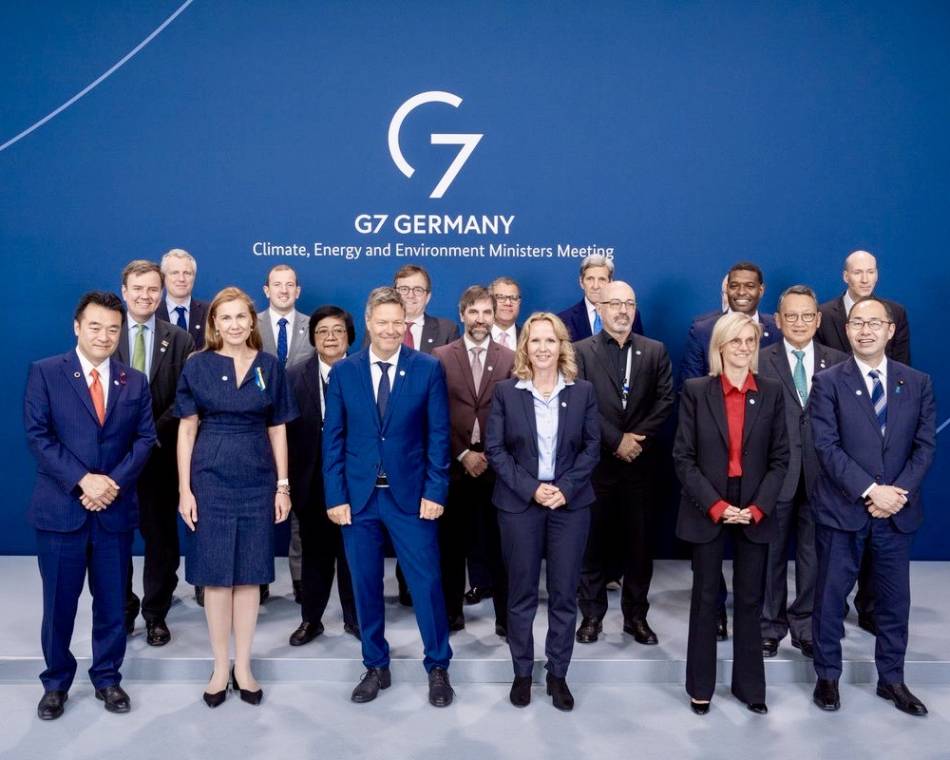Climate and energy ministers from the Group of Seven rich democracies pledged to largely end their reliance on coal and other fossil fuels to generate electricity by 2035, responding to worries about climate change and energy security in the wake of Russia's war in Ukraine.
The decision means the G-7 nations — Canada, France, Germany, Italy, Japan, the United Kingdom and the United States — will "drastically increase electricity generated by renewable energies, as well as the use of renewables in heating, cooling and transportation," the G-7 ministers agreed on Friday at the end of a summit in Berlin.








